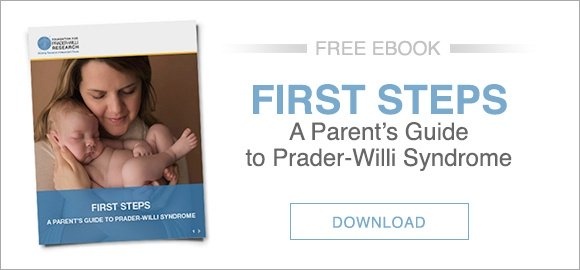Obese individuals often have a deficiency in peptide YY (PYY), a hormone that is produced by endocrine "L" cells of the lower gastrointestinal tract, the stomach and the brainstem. Low levels of PYY may be a predisposing factor to the development of obesity, and administration of PYY inhibits food intake in animals, including humans, thereby regulating body weight and body composition.The study of PYY is particularly of interest to the PWS community, as this study and others like it suggest that PYY treatment could be beneficial to those who suffer from obesity, a problem in PWS that can be life threatening.
In a new study [supported by FPWR: Sainsbury-Salis , 2005], mice were generated to overexpress PYY and the hypothesis was that these mice would not become obese (PYY transgenic mice are protected against diet-induced and genetic obesity , Boey et al., Neuropeptides, 2007). The transgenic mice were very hard to produce, and it appears that PYY overexpression is lethal to growing embryos, as only 2 out of 150 offspring were successfully made transgenic (PYYtg). Under normal feeding conditions, normal wildtype (WT) mice and the PYYtg had similar body weights, but under high-fat feeding conditions, the PYYtg mice were significantly less obese. The PYYtg mice have increased activity in the axis of the nervous system that governs the hypothalamus, the pituitary gland, and the thyroid gland, as was indicated by measurements of the hormones secreted by these areas.
To further examine the possible effects of overexpression of PYY on obesity, ob/ob mice (which present a well-documented model of obesity) were created that overexpressed PYY. The PYYtg/ob mice had significantly less fat tissue and fat mass independent of food intake. These mice also showed improved glucose tolerance and decreased insulin, providing support for PYY treatment as a modulator of the disturbed glucose processing that is often seen in obese individuals.
Because of the high death rate among transgenic mice, it is cautioned that too much PYY can indeed be dangerous, while it appears that moderate and even modest amounts can be beneficial for improving glucose tolerance, reducing body weight and fat tissue, and improving the functioning of the hypothalamic-pituitary-thyroid axis.
The authors state that their findings provide support for the use of PYY as a possible treatment for obesity through not only the regulation of appetite, but through improved energy efficiency. The potentials for the use of this kind of treatment in obesity in general and in PWS in particular remain to be seen, but PYY administration could be very helpful in targeting obesity from a global perspective, as opposed to merely limiting caloric intake and encouraging exercise.








